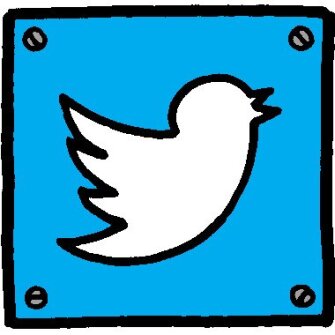On Friday afternoon, I sat staring at the blinking cursor on my computer, trying to figure out what to say.
I tried really to think of a hook for this piece. I did. I took a breath and closed my eyes. Then, I opened them, looking across the empty tables of my recently vacated classroom. What could I dig out of my brain to put on the page to share with fellow educators?
But the only thought my brain could muster in the moment was, Oh my gosh. I am so tired.
If good writing comes from truth and vulnerability, here’s mine: I am so tired. Returning back from winter break is historically hard, and I’m sure many teachers, like me, are feeling the struggle.
That’s how I felt yesterday morning, when I frantically realized I needed to go over logos, ethos, and pathos as my students prepared for the persuasive speeches. It was 6 a.m., and I had to get moving. I pulled up my notes, which I had used for years, to make sure I felt good about them.
I changed a few examples, cleared up some things, but then stopped when I got to pathos. I’ve always used the opening of Dr. Martin Luther King Jr.'s “I Have a Dream” speech, explaining how the imagery of little children tugs on the audience’s heartstrings.
But then, I remembered seeing this tweet from Tricia Ebarvaria and Valeria Brown, two fantastic educators, discussing this on an amazing Twitter chat called #ClearTheAir that Valeria runs:
Every time I read this (we study it in class around this time every year), I am astounded by King’s words. He GOES there. And yet what most people know about him are colorblind fairytales. #ClearTheAir https://t.co/OYoEKFTPG4
-- Tricia Ebarvia (@triciaebarvia) January 17, 2019
I’ve read and written about how important it is not to sanitize history, and Dr. King’s legacy is commonly sanitized: He’s myopically painted as a peace-loving, feel-good martyr, unfortunately quoted far too often by some people attempting to try and quell what they see as “dangerous rage” (aka “justified anger”) to our societal status quo.
Of course, Dr. King wrote eloquently about peace. He also told powerful truths—yes, with love—but upfront and visceral about the world’s injustices.
Brilliant King. Powerful King. This is my father at his most truth-telling, yet love-centered, self. Watch and share on today, his 90th birthday. #MLK90 #MLK pic.twitter.com/eCJWCVnD1k
-- Be A King (@BerniceKing) January 15, 2019
As I looked at my typical pathos examples, I couldn’t help but ask myself: Was my complacency making me complicit in the sanitization of Dr. King? It seems like a small thing, an example on a slide, but was it a wasted moment to show my students a side of Dr. King they may have not seen?
So, I quickly searched up “Letter from a Birmingham Jail” and found a brilliant, powerful example of pathos.
It didn’t take me long—10 minutes, at most—but it was definitely worth it (Tricia later pointed me to this excellent resource, by the way). It didn’t require hours of work, it required purpose, focused time, and mental space. I needed to have enough capacity to ask myself these questions. I needed the space and time to step back and look at my practice. I also needed to be pushed and committed to doing this work as best I can, because I get it: Sometimes, it really does feel hard to make even these small changes.
We’re busy, consistently juggling 30 different things, navigating and supporting not just ourselves, but tens to hundreds of emotional, irrational, hilarious, marvelous, ridiculous, wonderful small humans each day. Many of us also have to do it in less-than-ideal circumstances, which only compounds the struggle.
So, it’s easy to say it’s too hard. It’s easy to be complacent, rest on the laurels of tried-and-true lessons we’ve used for years. “It’s not a big deal,” we tell ourselves, justifying that “this isn’t even a huge part of my curriculum anyway.”
The thing is, these small moments are part of a very important curriculum. Students are looking at us as models for the work they will do and choices they will make. These seemingly little actions add up to the daily sparks that can begin igniting our students to take action and make change
And, even if that seems daunting at times, it’s a really beautiful part of teaching. It’s a joyous realization that, even when problems feel big and systemic, the little things we do are small sparks that can incite a wildfire of change in our students. Being thoughtful about the texts—long and short—we give them is just one example of what could be a meaningful moment.
While my students and I didn’t get into a long discussion about Dr. King and his legacy, I am glad that the text I gave them hopefully widened their understand of the work he did. I hope I gave them a peek into a deeper, more nuanced conversation for them to explore. Yes, sometimes we are tired and it seems too big to take on, but these “small” moments matter. It was a small change, but one that I hope will help lead to bigger discussions and, eventually, changes for my students to make in the world around them.


